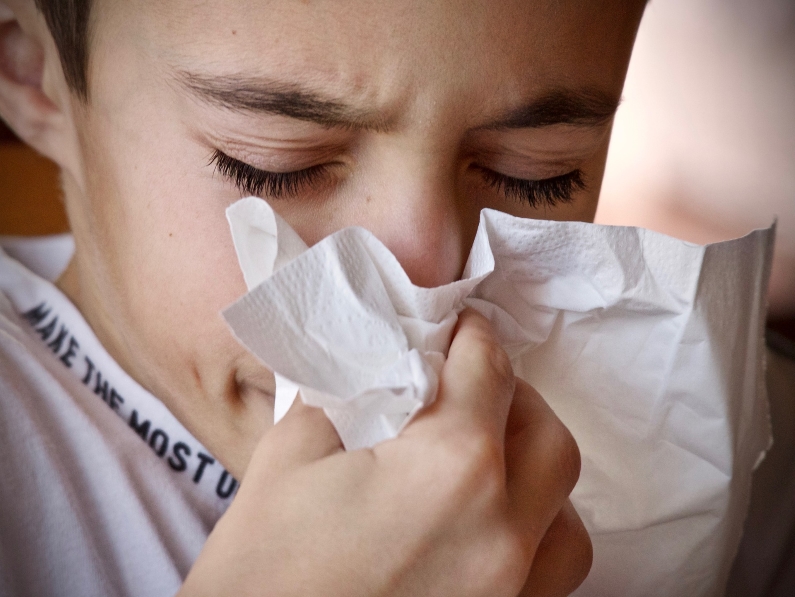No matter what the risks are of complications stemming from flu vaccines, avoiding the vaccine itself is riskier.
In 2018 alone, the United States experienced its deadliest influenza outbreak – 80,000 deaths, 180 of which were children. In addition, 900,000 people went to the hospital from flu complications.
So many people ask themselves each year whether they should get the influenza vaccine, and the simple answer is YES. All medical institutions, the Center for Disease Control being the topmost, recommend getting the flu vaccine to either prevent or lessen the debilitating illness.
People assume that if they don’t get the flu in a particular year, then getting the vaccine is not necessary. The thing is, everyone responds differently to the flu. There can be mild symptoms, and there can be fatality if it hits a vulnerable immune system.
Even more alarming, is that many of the annual flu deaths occur in people who were perfectly healthy prior to contracting the illness.

Who Should Get Vaccinated?
All people that are 6 months and older should vaccinate or flu every year, and the recommendation is by the end of October for earlier protection.
Remember, it takes roughly two weeks after vaccination for antibodies to develop in the body. Some children (6 months to 8 years old) require two doses of flu vaccine for protection, so they would need two doses delivered four weeks apart.
Peak time takes place in January and February, although flu patterns can fluctuate at any time. For the most part, virus activity begins by October or November and wraps up near May.
The Flu Vaccines
There are two types of vaccines – a live vaccine and an inactivated one.
Currently in the United States, there are twelve different influenza vaccines available, made by seven different manufacturers.
FLUMIST nasal spray is quite popular because its needle-free and that appeals to children, although pediatricians still opt for the injection for maximum protection. FLUMIST is a live vaccine and therefore doctors should not administer it to very young children or those over 50.
Some people avoid the flu vaccine because of the risks involved with egg-based vaccines (versus cell-based). The H3N2 strain can mutate and create a strain harder for the human immune system to identify. This complication is only with the H3N2 vaccine; overall, egg-based vaccines still offer good protection against the H1N1 and B strains.
Also, egg-free vaccines are available such as Flucelvax and Flublok. These may actually work better than older egg based vaccines.
This is why its important to monitor which virus strains are circulating each year.

Vaccines for the 2019-2020 Flu Season
The CDC annually updates the information on the composition of the vaccines. Scientists match these as closely as possible to identified viruses that will be circulating. For the most part, flu vaccines protect against three or four viruses.
For the upcoming 2019-2020 flu seasons, there is a trivalent (three component) vaccine recommended, which will protect against:
- A/Brisbane/02/2018 (H1N1)
- A/Kansas/14/2017 (H3N2)-like virus
- B/Colorado/06/2017-like (Victoria lineage) virus
And a quadrivalent (four-component) vaccine is recommended this year to also protect against B/Phuket/3073/2013-like (Yamagata lineage) virus.
The Bottom Line
It’s still possible to get sick from the flu even after vaccination. This can happen because the body may be exposed to the virus before antibodies have been built up to offer protection. It’s also possible to be exposed to a virus that was not included in the flu vaccine for this year.
Lastly, everyone is different. Perhaps the two criteria above are not even applicable and still one gets the flu – it can be a factor of genetics, age, and overall health composition.
It is difficult to really pinpoint efficacy when there are driving forces working against it – such as different strains circulating. This can happen even within one flu season after pharmaceutical industries have already made and sold their vaccines. As discussed earlier, most flu vaccines are egg based and this can have an impact on the accuracy of targeting H3N2 virus matching as well.
The vaccine is not perfect, but it still offers the best line of defense. In terms of efficacy, the vaccine reduces illness risks by 40-60%.
For more information on influenza and its vaccines, visit
https://www.cdc.gov/flu/index.htm.







